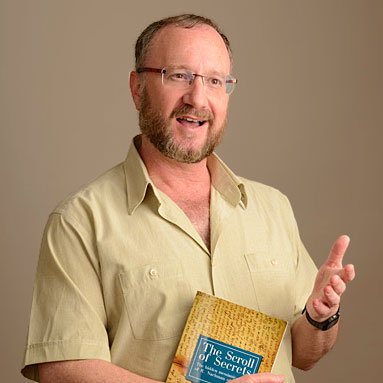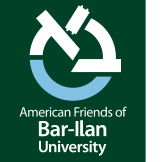Hasidic stories can do more than fascinate the reader. They can inspire and foster introspection, encourage emotional growth, and even heal. “The connection between bibliotherapy and Hasidic literature is very natural, and today there’s greater awareness among therapists that if you want to reach people, you need to speak their ‘language,'” says BIU Hebrew Literature Prof. Zvi Mark, academic head of BIU’s new diploma studies program, The Healing Power of Hasidic Stories.

Prof. Zvi Mark
“It’s difficult for a person to talk about something very painful in a direct way but through stories, he’s able to express his perspective without discomfort,” explains Mark, incumbent of the Chair for the Study of Hasidism and the Teachings of Rabbi Levy Yitzhak of Berdichev, founded by Levy Yitzhak and Yehudit Rachmani.
A select group of ten (including educators, psychologists, social workers and therapists) are enrolled in the novel one-year program, which is a joint effort of the Chair, the Joseph and Norman Berman Department of Literature of the Jewish People, and the Continuing Education Unit of the Louis & Gabi Weisfeld School of Social Work. “Through reading texts and creative writing, students gain an understanding of the psychotherapeutic aspects of Hasidic stories. This enables them to acquire greater self-awareness and self-empowerment, and to learn to apply this method in their professional work,” elucidates program coordinator, Dr. Tamar Sheinbaum Asaig, a BIU alumna and art therapist.
A well-known Hasidic tale by Rabbi Nachman of Bratslav (Breslov) relates how a prince goes mad and is convinced that he’s a rooster. Sitting naked under the table, he pecks at his food. The horrified king calls in the best physicians, but to no avail. At last, a sage arrives who claims he can cure the prince. He undresses and sits under the table next to the prince, saying that he’s also a rooster. Gradually the prince accepts him as a friend. “What makes you think that a rooster can’t wear a shirt?” the sage asks him one day. The prince agrees to don a shirt. The sage tells him that a rooster can eat good food, sit at the table, etc. Step-by-step, the rooster prince begins to act normally, until he is totally cured.
Several lessons may be learned from this tale, including the importance of empathizing with confused, lost souls. The healer adopts a step-by-step approach to help the prince return to his former self, in a manner which he can accept.
In another R. Nachman classic, a man is surprised to discover that the treasure which he seeks in the big city is actually situated under the floor in his own home. Indeed, every individual has his own unconscious inherent richness which he needs to recognize.
“The story turns the man inward toward the hidden divine spark in his soul, in the depths of his unconscious world,” expounds Shmuel Weinstein, a clinical psychologist, psychotherapist and lecturer in the new BIU program.
“The allegory may be viewed as a psychological defense mechanism which masks and hints at the message whose meaning is consciously rejected,” explains Weinstein, who wrote his PhD dissertation on Hasidism and Psychology at BIU. “Both Hasidism and psychoanalysis have discovered the coexistence of contradictory and complementary emotional tendencies in the human soul. Each have found in their own way, that people are able to love and hate at the same time, to understand intellectually what they refuse to accept emotionally, and to unconsciously comprehend what they reject rationally.”
Bibliotherapist David Lester, another lecturer who is writing his PhD thesis on Hasidism at BIU, relays that one traditional-minded program participant said that this is the first time that he is able to successfully explore spirituality and mysticism through creative writing because the texts are rooted in Jewish tradition. “Not only does the Hasidic story have the ability to pull the person who is religiously inclined into the therapeutic setting, but it can give language and invite the higher spiritual and more refined aspects of our personality in full.”
The Hasidic genre can make its mark as a psychotherapeutic means as more mental health professionals and others become closely acquainted with the healing power of Hasidic stories.





